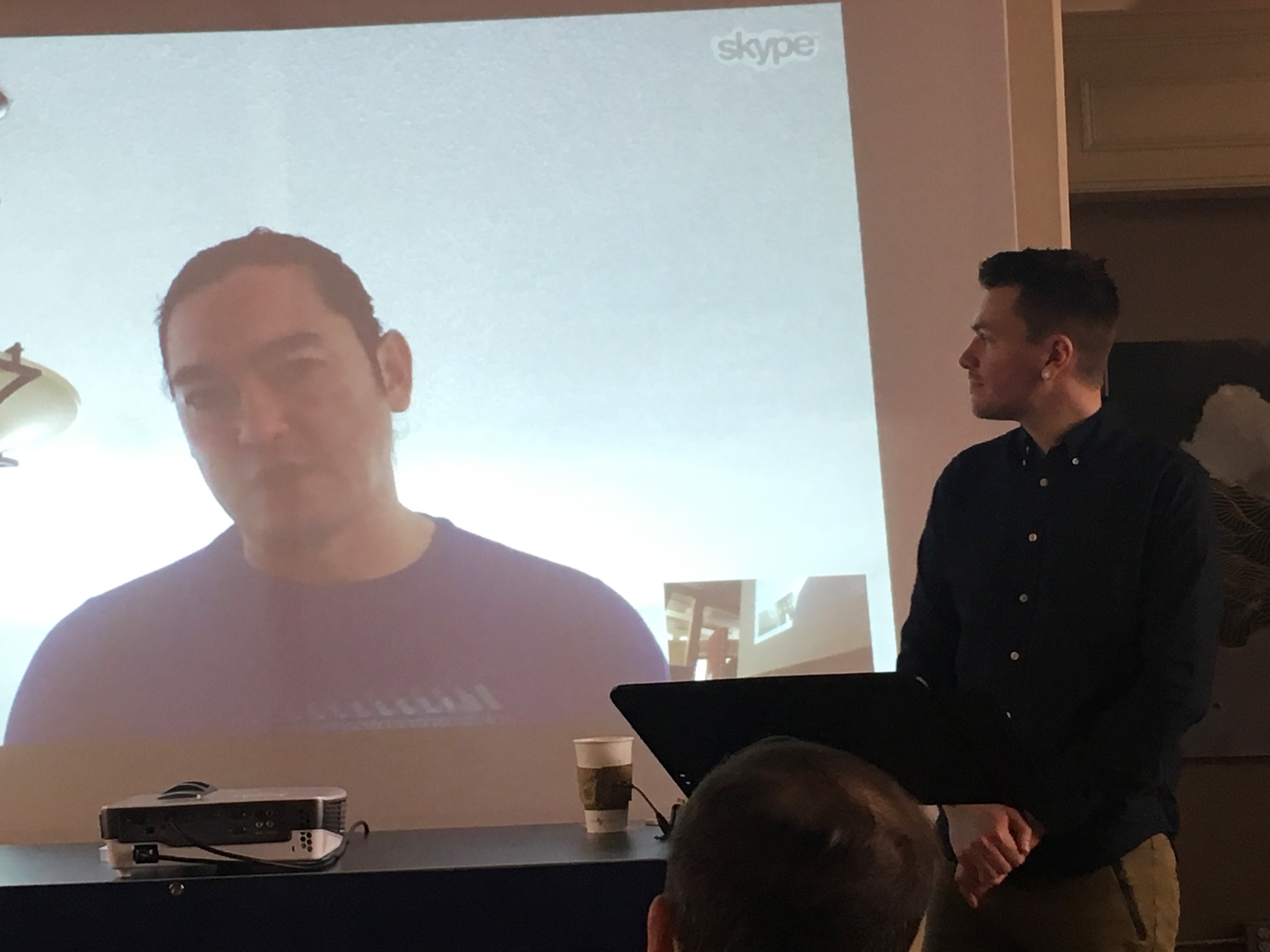
New Haven chef Bun Lai addressed the correlation between sustainability and dietary choices before an audience of 90 at a Sunday talk.
Lai, the founder and head chef at Miya’s Sushi — an Elm City restaurant that exclusively serves ethically sourced Asian food — highlighted the connection between social justice and sustainability that comes with maintaining a plant-based diet. The talk was part of the Yale Humanist Community’s Humanist Haven gathering, a biweekly meeting where members of the Yale and Greater New Haven communities convene to discuss existential questions affecting society.
“From the time we start suckling to our last bite, our strongest connection to the outside world is how we eat,” Lai said.
Lai began his talk by outlining the relationship between an individual and his or her diet. Each body operates as its own ecosystem, he said, citing the correlation between individuals’ gut flora — bacteria in the intestine that breaks down food — and their consumption of red meat, which he said has a deleterious effect on health. Lai noted that red meat alters gut flora composition in a manner that increases individuals’ risk of contracting cancer or becoming obese, citing the World Health Organization’s October 2015 classification of red meat and processed meats as class one carcinogens.
“You can’t really separate our relationship with the environment from human justice,” Lai said.
Lai also emphasized the importance of other sustainable eating practices, such as consuming invasive species and supporting smaller industries over mass food-producing conglomerates.
Miya’s Sushi offers a variety of invasive species — types of plants or animals that are alien to a particular ecosystem and could harm it if introduced — such as Asian shore crabs in its sushi, Lai said. Miya’s website explains that offering invasive seafood is akin to providing a free weeding service because it curbs the dominance of such species in the ecosystem. On any given day, there are roughly half-a-dozen invasive species on Miya’s menu, Lai said.
The sushi house also does not source fish from factory farms. Lai explained that farmed salmon often comes from one of two sources: Norwegian conglomerates or Chilean farms, which negatively impact the Chilean economy and the environment. Heavy salmon farming causes dead zones — regions of oxygen-deprived water that cannot support life — to form. When dead zones form in parts of Chile that depend on salmon farming, the economy suffers.
Greg Grinberg, the founder of Actual Food — a New Haven-based supermarket model that provides healthy, fresh food to low income neighborhoods — said sustainable, plant-based eating initiatives cater to the long- and short-term interests of individuals and communities as whole. He noted that these sustainable diets are both tasty and benefit the long-term health of the environment.
Grinberg said sustainable restaurateurs and entrepreneurs, including himself and Lai, want to restructure the food system until “the path of least resistance is sustainability.”
“[Miya’s] makes healthy, sustainable, delicious food. And, not only that — they make it cool,” Grinberg said.
Lai said restaurants are currently “wasteful” and “highly pollutive” by nature. He said the future of the food industry will be determined by the government’s implementation of policies restricting the use of scarce resources — such as energy and food.
He said a focus on sustainability will become necessary as the American food system continues to use large quantities of these resources.
Yale Humanist Community Executive Director Chris Stedman lauded Miya’s as “one of the most unique restaurants in the world.” He said he believes Lai’s approach to sustainability fits into the humanist community’s focus on and sense of personal responsibility to the world around them.
The Yale Humanist Community is hosting “Every Single Word: Racial Erasure in Pop Media” with Dylan Marron on Feb. 24 at 7:30 p.m. in Davies Auditorium.







